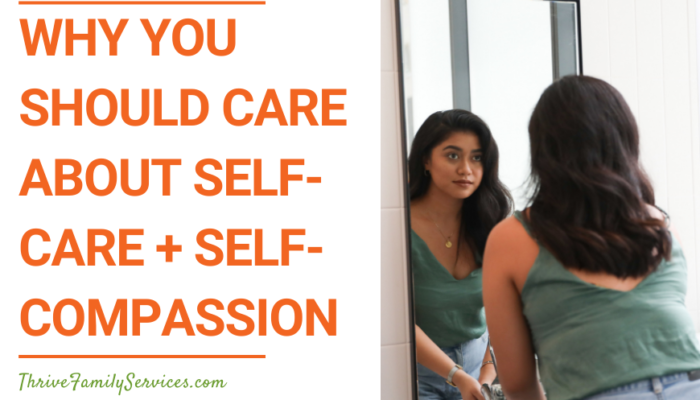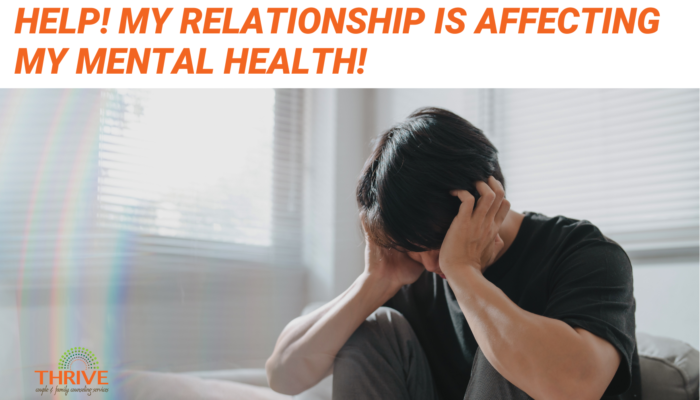“Anytime we can listen to true self and give the care it requires, we do it not only for ourselves but for the many others whose lives we touch.”
― Parker J. Palmer
Self-care is such a buzzword these days. Sometimes it even feels like just another task to complete on our mountain of to-do lists!
Let’s take some time and look at the importance of self-care, what happens when we don’t give time to ourselves, how self-compassion can impact our lives and our relationships, and what this care and compassion can look like personally for each of us.
When We Don’t Care About Self-Care
When we don’t take the time to care for our bodies, minds, and spirits, this neglect can result in some of the following experiences:
- Nervousness/Anxiety
- Tiredness
- Mental fatigue
- Restlessness
- Trouble sleeping
- Irritability
- Impatience
- Anger
- Physical pain, headaches
- Neediness
- Depression
- Burn out
(Barnard, Alexander, Lockett, Lusk, Singh, Bell & Harbison, 2020).
Are you experiencing any of these symptoms? If so, it may be a good moment to take out a little time in your day for yourself, for the sake of you and the ones you love.
What is Self-Care?
What is the first thought that comes to mind when you think about self-care? Doing yoga, meditating, or going to the gym? There’s much more to it! Studies show that not only exercising, but quiet time and spending time with friends can help calm our stress immensely (Barnard, et al. 2020, and supportive relationships top the list in preventing feelings of burnout (Hotchkiss & Lesher, 2018).
Many factors influence how well we have learned to care for our needs. Our families of origin, religion, and life experiences each affect the assimilation of values we have surrounding self-care. These can be negative, neutral, or positive, and impact how we approach showing care towards ourselves and one another (Poppa, 2019).
Here are some self-care categories to help us wrap our minds around all of the types of self-care:
1. Emotional
Emotional self-care includes finding and practicing healthy coping skills to manage stress and other difficult emotions. This could include going to therapy, talking with loved ones about our feelings and worries, and even just locating what is going on inside of us.
2. Physical
Physical self-care can include exercising, eating in a balanced way, incorporating healthy sleep hygiene/sleep routine, going to the doctor and dentist, as well as participating in mindful relaxation activities (Hotchkiss & Lesher, 2018).
3. Social/Relational
Social/Relational self-care involves investing and spending time with people that make us feel safe, inspired, encouraged, and joyful. This includes nurturing healthy relationships, setting boundaries (Parent Self Care, 2020), meeting with those who encourage us when we are struggling, and help normalize what we are feeling (Poppa, 2019).
4. Spiritual
Spiritual self-care is about finding purpose and fulfillment in the human experience. We can enjoy reading, conversations with friends, loved ones, or mentors, meditation, prayer, or participating in a faith community (Parent Self Care, 2020). We can be grateful for the little things and express these in small blocks of time throughout our day (Poppa, 2019).
5. Occupational
Occupational self-care is focused on participating in a work experience inside and/or outside the home that is fulfilling, beneficial, meaningful, and manageable (Parent Self Care, 2020). “Happiness…lies in the joy of achievement, in the thrill of creative effort.” (F.D. Roosevelt, N.D.).
6. Intellectual/Mental
Intellectual or mental self-care means investing in ourselves by continuing to grow and learn. This can be anything from reading, taking a class, attending a training, or listening to podcasts (Parent Self Care, 2020). Creative writing was also found to help disperse feelings of stress (Hotchkiss & Lesher, 2018).
7. Environmental
Environmental self-care is about spending time making our homes and/or workspaces calming, joyful, safe, and inviting (Parent Self Care, 2020). “Have nothing in your house that you do not know to be useful or believe to be beautiful.” (W. Morris, N.D.).
Try a Little Self-Compassion
Hotchkiss & Lesher (2018) also teach us that self-compassion is a key component of practicing effective self-care. Dr. Kristin Neff (2020) puts it like this:
“With self-compassion, we give ourselves the same kindness and care we’d give to a good friend.”
Neff goes on to say that we practice two types of self-compassion to give our best to the world.
- Tender self-compassion involves being with ourselves in a truly empathetic way, as we naturally would for a friend who was struggling.
- Fierce self-compassion protects and motivates us to say “no” to others who are hurting us, drawing kind but firm boundaries.
Ideas to Practice
Here are some ideas you can try to bring a little brightness and balance to your week. You’ll find tips for self-care as well as self-compassion statements to practice as you find fitting ways to take care of yourself.
As you sort through the options below or create a list of your own, keep in mind the activities that have calmed or nurtured you in the past. There is no one size fits all self-care routine that we all can follow, especially when it comes to your unique needs and personality (Sweeney, 2021).
Emotional Self-Care + Self-Compassion:
- Spend time with someone who can make space for you to feel deeply. This could be your therapist, family member, friend, or partner.
- Explore what stresses you out and set some boundaries. Don’t be afraid to say “no”.
- Watch a funny show or listen to a great podcast and laugh!
- SELF COMPASSION TIP: “It’s okay for me to have needs and share them with others.”
Physical Self-Care + Self-Compassion:
- Go to your gym or take a run/walk outdoors.
- Take a hot bath or long shower.
- Drink a glass of water or eat something that will make you feel good later.
- Take a catnap.
- SELF COMPASSION TIP: “I don’t have to do it all; I can do one thing that is good for my body today.”
Social/Relational Self-Care + Self-Compassion:
- Tell a friend/partner about the highs and lows of your day.
- Play a game with friends even if it’s over Zoom.
- Hug someone you love…this includes cuddling with pets.
- SELF COMPASSION TIP: “I realize that this season has been difficult for me to maintain a balanced social life.”
Spiritual Self-Care + Self-Compassion:
- Meditate, pray, journal, or read.
- Sing!
- Walk and notice the beauty around you.
- SELF COMPASSION TIP: “I can show up exactly as I am.”
Occupational Self-Care + Self-Compassion:
- Put up a favorite quote or photo to refer to during the day.
- Set up a social meeting with a coworker you enjoy.
- Buy a new mug for your coffee or tea.
- SELF COMPASSION TIP: “When I make a mistake, I can speak kindly to myself.”
Intellectual/Mental Self-Care + Self-Compassion:
- Make time for your favorite hobby. Do some gardening, play a sport, cook/bake, dance, or work on your car.
- Learn something new about another culture.
- Read, draw, or write creatively for fun.
- SELF COMPASSION TIP: “Learning and growing means I don’t have to have all the answers.”
Environmental Self-Care + Self-Compassion:
- Create a little corner of private space for yourself at home.
- Tidy up your house or rearrange/redecorate an area that will make it feel fresh.
- Light a scented candle or turn on an essential oil diffuser.
- SELF COMPASSION TIP: “My home doesn’t have to be perfectly clean or put together to be comfortable and safe.”
Assess Your Self-Care Style
Finally, take a few minutes and see if there are ideas on the above list that you’d like to put into place. We just have to remember not to stress ourselves out over our own self-care plans! Even just taking time to process what could feel good is a step in the right direction.
- Describe one or two of your current self-care and compassion practices.
- What are 1-2 of the most challenging aspects of incorporating self-care and compassion into your life?
- What are 1-2 of the most effective or rewarding aspects of practicing self-care and compassion?
- How do I speak to myself when I make a mistake? Do I respond with kindness or harshness? What could I try saying to myself the next time I have a hard day?
- If you had the opportunity to incorporate 1-2 aspects of self-care and compassion into your week, what would they be? (Poppa, 2019)
As you reflect on the self-care and compassion practices that allow you to feel more like “you” again, we hope that you can find what you need to feel grounded, peaceful, engaged, accepted, and loved.
If you are having a difficult time finding compassion for yourself, one of us would love the opportunity to listen to your story in this season with empathy and care. Contact us at Thrive Couple & Family Counseling Services for individual, couple, or family counseling to help get through that stuck place toward positive change.
REFERENCES
-
Barnard, S. A., Alexander, B. A., Lockett, A. K., Lusk, J. J., Singh, S., Bell, K. P., & Harbison, L. A. (2020). Mental health and self-care practices among dental hygienists. Journal of Dental Hygiene, 94(4), 22–28.
-
Hotchkiss, J. T., & Lesher, R. (2018). Factors predicting burnout among chaplains: Compassion satisfaction, organizational factors, and the mediators of mindful self-care and secondary traumatic stress. The Journal of Pastoral Care & Counseling, 72(2), 86–98.
-
Neff, Kristin (2021). Center for Mindful Self-Compassion.
-
Parent Self Care (2020). The wellness wheels: Nine self-care categories.
-
Poppa, K. (2019). Self-care is soul care. Journal of Spiritual Formation & Soul Care, 12(1), 50–70.
-
Raypole, Crystal (2020). How to make a self-care checklist that actually works for you. Healthline.
-
Sweeney, Shannon (2020). Self-care for your personality type. Pure Healthy Living.




